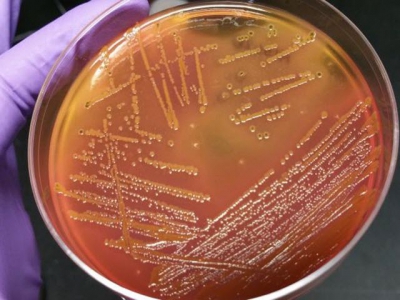Can mastitis treatment affect gut microbiome in dairy cattle?
Mastitis infusions probed for links to antibiotic-resistant bacteria in intestinal microbiome of dairy cattle.
 Coordinated action needed on mastitis
Coordinated action needed on mastitis Noting that prevention is better than cure, global dairy experts convene in Denmark to discuss managing udder health and reducing antimicrobial use.
 Project targets heat-stressed dairy cows
Project targets heat-stressed dairy cows Along with matching funding from industry, $1.47 million project at Cornell to study dairy cows' ability to withstand heat stress.
 Dietary fat may be key to dropping dairy cow GHG emissions
Dietary fat may be key to dropping dairy cow GHG emissions Adding supplemental fat to dairy cow diets may reduce cows’ methane yield regardless of grain used in the diet, say researchers.
 Better protein labelling of dairy feeds required, says Irish group
Better protein labelling of dairy feeds required, says Irish group To reduce costs and the potential environmental impact of a cow’s diet, farmers need a better indicator of the protein content of their feeds
 Can moose digesta help inform ruminant nutrition?
Can moose digesta help inform ruminant nutrition? First-of-a-kind study advances understanding of microbial and viral communities involved in ruminant biomass breakdown.
 Winning the battle against heat stress starts with nutrition
Winning the battle against heat stress starts with nutrition On-farm protocols aren’t the only things keeping your cows cool. The right nutritional solutions can play a big role in mitigating the effects of heat stress.
 Uruguay: Fresh forage and TMR mixed diets may be cheaper, support high milk yield
Uruguay: Fresh forage and TMR mixed diets may be cheaper, support high milk yield Adding set amounts of fresh forage to dairy cow diets may provide cheaper feed, support high milk production and add desirable fatty acids to milk composition
 Livestock chain analyses help predict disease spread
Livestock chain analyses help predict disease spread Livestock transportation chains are often very complex, and that complexity expands the larger the industry segment is, making understanding the contact chains
 Supplementing diets for pastured-raised dairy cows may boost milk yields
Supplementing diets for pastured-raised dairy cows may boost milk yields A blended, yeast-based additive may improve dry matter intake and milk production for pasture-raised dairy cows facing heat stress conditions, say researchers.
 Genomics link beef cattle to production environment
Genomics link beef cattle to production environment Grant issued in 2015 starting to match cattle to specific environments in U.S.
 Muddy pastures interfere with livestock grazing
Muddy pastures interfere with livestock grazing Compression from tires and ruts from cattle or horse traffic can permanently damage pastures, and heavy rainfall can worsen that damage.
 Infrared tech may support cattle herd improvement
Infrared tech may support cattle herd improvement Science-driven system opens new doors for optimizing feed efficiency.
 Beef production accounts for 3.3% of U.S. GHG emissions
Beef production accounts for 3.3% of U.S. GHG emissions The research team completed a comprehensive life-cycle analysis quantifying the resource use and various environmental emissions of beef cattle production
 Cutting methane emissions in cattle
Cutting methane emissions in cattle Researchers from Mexico and Colombia examined the influence on methane production of including tannins and saponins in the diets of heifers.
 Corn processing method may boost cow growth, energy
Corn processing method may boost cow growth, energy Increasing high moisture corn in diets improves growth efficiency and net energy, finds study.
 Modified grazing may benefit cow/calf producers
Modified grazing may benefit cow/calf producers Modified intensive early stocking may improve several performance measures for both cows and calves.
 Veterinary study aims to reduce calf pain during difficult births
Veterinary study aims to reduce calf pain during difficult births Dr. Jennifer Pearson, a veterinarian pursuing doctoral studies at the University of Calgary Faculty of Veterinary Medicine (UCVM)
 Encapsulated additives may boost meat tenderness in feedlot cattle
Encapsulated additives may boost meat tenderness in feedlot cattle Adding a blend of encapsulated feed additives with clove and rosemary essential oils may improve the tenderness of meat from grain-fed cows without changing
 Flaxseed additives may boost dairy cow health, milk production
Flaxseed additives may boost dairy cow health, milk production Adding rumen-protected flaxseed to dairy cow diets may improve health, increase the nutritional value of milk and boost milk production, says researcher.
